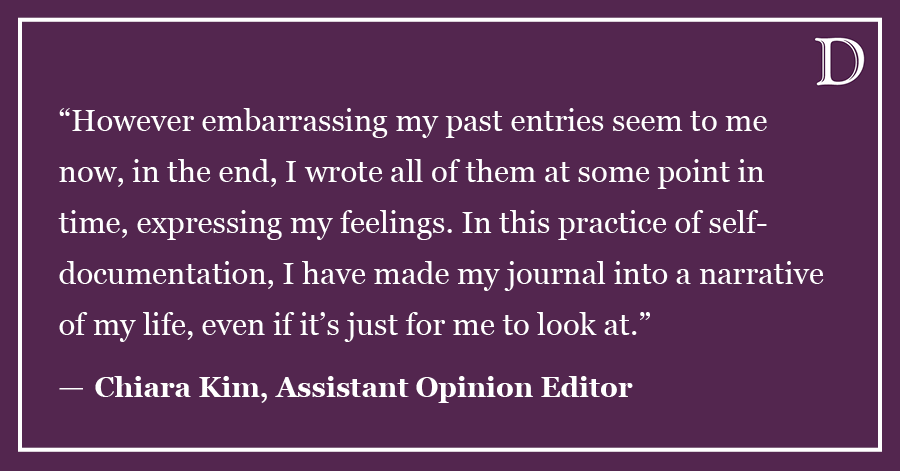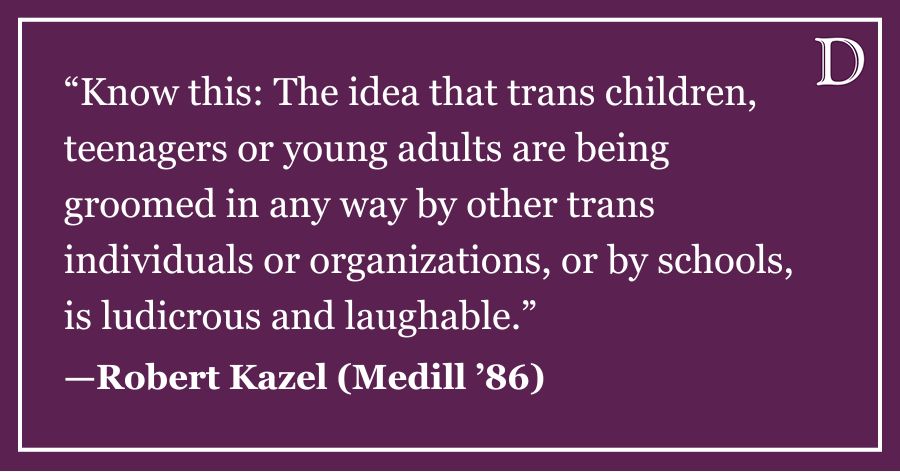Recent events have brought the issue of racial profiling to Northwestern’s doorstep, and they deserve to be addressed and discussed in a thoughtful way. The subjects of race relations and racial profiling in America are so profound, emotional and complicated for all involved that it is nearly impossible to do them justice in a 600-word column. I realize too that as a white male from a suburban background, I cannot possibly imagine how it feels to live under a cloud of suspicion from authorities, as so many minorities have been forced to for generations, nor do I know the fear a mother faces when her child is threatened.
I am referring to the erroneous police targeting of 13 year-old Diwani Greenwell, the son of Medill Prof. Ava Thompson Greenwell, and the subsequent lawsuit that the Greenwell family has brought against the Evanston Police Department and the city of Evanston for the wrongful detainment. EPD maintains that Diwani matched the description they were given of a burglary suspect, while the Greenwell family insists that he was treated in a harsh and discriminatory manner. I believe that officers conducted themselves in an unprofessional manner and owe the family a full apology. Racial profiling is indeed a systemic problem in our law enforcement system. However, I do not believe that the specific circumstances of Diwani’s detainment or his subsequent treatment warrant the lawsuit.
To be clear, the case against EPD is not entirely without merit. The Greenwells are correct in noting that Diwani did not need to be surrounded by multiple officers and handcuffed when he was not fleeing arrest. If I had been surrounded as a child by adults and handcuffed outside of my home, I would undoubtedly feel violated. The Evanston Police do indeed owe an apology to the Greenwell family for their overzealous apprehension and examination of Diwani as a burglary suspect. The Greenwells are also accurate in their description of racial profiling as a serious and widespread problem that affects minority families of all kinds. Anyone who thinks that racial bias or discrimination are things of the past is living in a sanitized, post-racial world that, unfortunately, does not exist yet. Racial profiling is an issue that has been belabored for decades and must be debated further still. The cycle of mistrust and contempt that it breeds between many minorities and members of law enforcement needs to be combated.
The erroneous actions of the EPD and the systemic nature of the racial profiling issue aside, the treatment that Diwani received from the police was not severe enough to warrant a lawsuit or monetary compensation from the city. As the police have stated, Diwani as a “black male wearing blue cargo shorts” matched the description of a burglary suspect; this description, albeit vague and not grounds for handcuffing, did warrant the initial questioning, given that he was in the area where a crime occurred. The police also released him after a mere 10 minutes by bringing the witness to the scene to exonerate him, sparing him the indignity of being forced to the police station to stand in a lineup. The police did create an unnecessarily hostile environment, but based on Diwani’s similarity to the police description, his civil rights were not violated — and neither is the lawsuit necessary.
Prof. Greenwell has stated that the suit is “not just for our son,” and that she is taking a stand for all victims of racial profiling. I applaud her for taking this stance and attempting to spur Evanston police officers to examine how they conduct their relations with minorities. The community members have since raised similar issues with EPD; however, suing strikes me as an action borne more out of emotion and personal offense than strong legal reasoning. Ultimately, the lawsuit is the wrong course of action in the fight against pervasive racial bias.
Ryan Kearney is a Communication sophomore. He can be reached at [email protected]. If you would like to respond publicly to this column, email a Letter to the Editor to [email protected].














